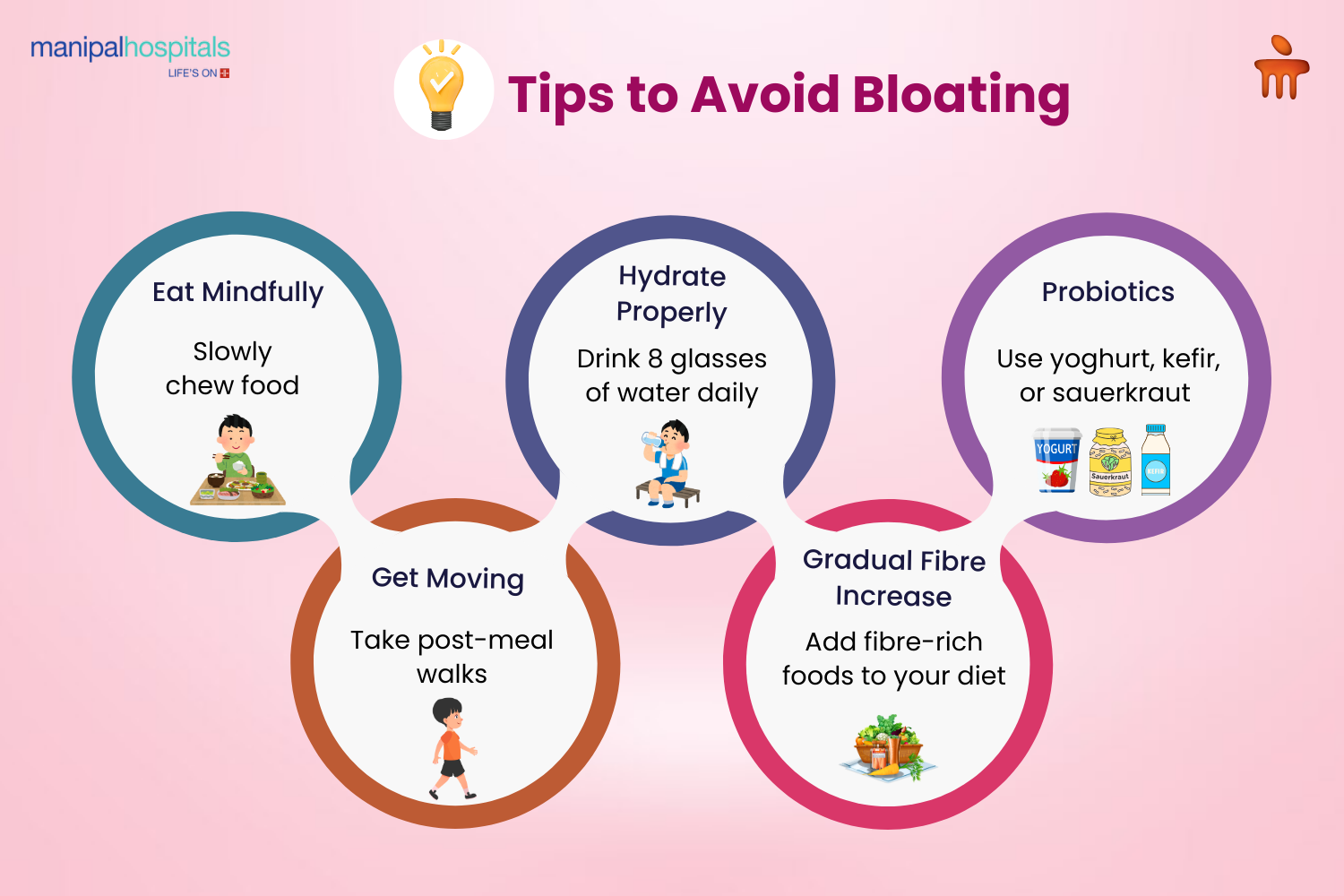
Digestive issues are serious problems, no matter how minor they seem! A little misstep in your dietary intake, and you are done with the rest of the day. This feeling of discomfort is irritating and draining. Bloating and gas are highly common in today’s lifestyle – these digestive issues do not hesitate to impact your daily activities. However, there are natural remedies you can benefit from. Some simple lifestyle changes also can alleviate your symptoms effectively. In this blog, we will discuss common natural remedies and certain effective tips for managing bloating and gas.
Synopsis
Understanding Bloating and Gas
Bloating refers to the feeling of fullness in the abdomen, often due to trapped gas that the digestive tract cannot effectively release. Certain contributing factors are poor diet, stress, or underlying digestive conditions.
Gas, on the other hand, is a regular byproduct of digestion. However, if it accumulates in the intestines, it can cause malaise (a feeling of discomfort).
Common Causes of Bloating and Gas
Expert gastrologists in Bangalore often suggest that if you know the reason behind it, you can easily address the problem. So, first, let us know the causes of bloating and gas:
-
Dietary Factors: High-fibre foods, carbonated drinks, and artificial sweetener-rich food can cause bloating and gas. Spicy and fatty foods can trigger acidity.
-
Eating Habits: Ask yourself these questions – “Do you eat too quickly?” “Do you consume a large meal altogether?” “Does your food habit not follow a proper routine?” “Do you not take time to chew your food?” If the answer to all of these is yes, your digestive system will be affected.
-
Lack of Physical Activity: Think about how you spend your day. A sedentary lifestyle slows down your digestion and increases the risk of bloating and acidity.
-
Stress: High-stress levels can disrupt your digestive process, making you feel bloated and causing acid reflux.
-
Underlying Digestive Disorders: Conditions like IBS (Irritable Bowel Syndrome) or GERD (Gastroesophageal Reflux Disease) are associated with bloating and acidity.
Read our blog: Inflammatory Bowel Disease in Children and Adolescents
Natural Remedies for Gas and Bloating
Now that you might have realized what’s causing your bloating, it’s time to hunt for natural remedies.
1. Ginger
Ginger has natural anti-inflammatory properties, can soothe the digestive system, and can reduce gas. Drinking ginger tea after meals helps improve digestion and reduce bloating.
2. Fennel Seeds
Fennel seeds possess carminative properties, which help relieve gas and bloating. Chewing a few fennel seeds or drinking fennel tea after meals may aid digestion.
3. Peppermint
Peppermint is effective for relaxing the gastrointestinal tract and helping reduce bloating and gas. Peppermint tea is an excellent remedy, especially after a heavy meal.
4. Warm Water with Lemon
A glass of warm water with a few drops of lemon juice in the morning can help flush out toxins and reduce acidity. Lemon juice, despite being acidic, has an alkalizing effect on the body once metabolized.
5. Chamomile Tea
Chamomile has anti-inflammatory and antispasmodic properties. Before going to bed, taking chamomile tea can help relax the digestive tract and relieve bloating, making it ideal for those who experience discomfort after dinner.
6. Apple Cider Vinegar
Apple cider vinegar can help balance stomach acid levels. Try adding a teaspoon to a glass of warm water before meals.
7. Avoiding Carbonated Drinks
Carbonated drinks introduce excess air into the digestive tract, leading to gas and bloating. Replacing sodas with water or herbal teas can significantly reduce bloating and acidity symptoms.
Lifestyle Tips for Preventing Bloating and Gas

Besides opting for the remedies, you can also start making healthy lifestyle choices for betterment.
-
Eat Smaller, Frequent Meals: To ease digestion, opt for smaller portions throughout the day instead of large meals.
-
Chew Food Thoroughly: Proper chewing aids digestion and prevents swallowing excess air, which can contribute to bloating.
-
Avoid Late-Night Eating: Eating close to bedtime can trigger acidity as the body’s digestion process slows down during sleep.
-
Stay Hydrated: Water aids digestion and prevents constipation, a common contributor to bloating.
-
Exercise Regularly: Physical activity promotes digestive health and helps prevent gas and bloating.
When to Seek Medical Help
These natural remedies and lifestyle adjustments can indeed provide you relief from bloating and gas. However, sometimes, the symptoms of bloating and gas are persistent and severe. Never hesitate to seek help from an experienced gastroenterologist in Bangalore at such times. Frequent bloating, gas, or acidity with symptoms of blood in stool, severe stomach pain, and sudden weight loss might be indicators of an underlying digestive disorder. A simple acid reflux might complicate your health without proper medical guidance.
Remember, early diagnosis and treatment can help manage underlying conditions and alleviate your bloating symptoms.
FAQ's
Foods rich in fibre, such as beans, broccoli, lentils, and cabbage, can cause gas. Carbonated drinks, dairy (for lactose-intolerant individuals), and artificial sweeteners may also cause bloating and gas.
To prevent acidity, eat smaller, balanced meals and try to avoid eating spicy, fatty, and acidic foods. Also, waiting at least two hours before lying down after eating can prevent acid reflux.
Over-the-counter remedies can offer temporary relief for bloating, but long-term relief is best achieved through lifestyle changes and medical attention. Always consult a gastroenterologist before starting any medication for bloating and gas.





















 5 Min Read
5 Min Read














